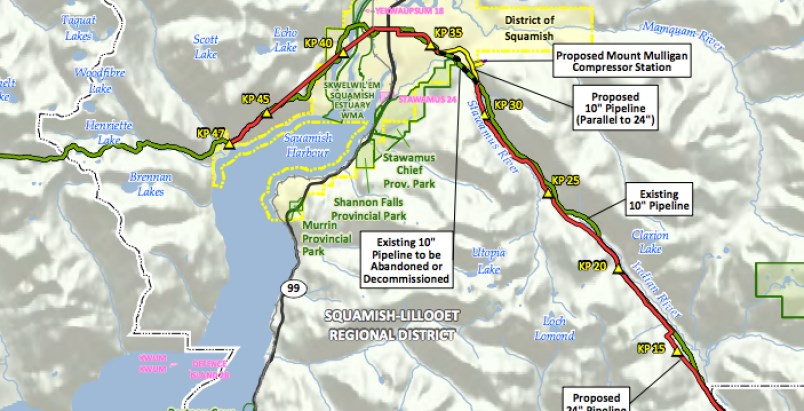I am commenting on the recent document circulated in the Squamish area by the “Concerned Residents of Valleycliffe” (CRV), entitled “FortisBC Compressor station on Mount Mulligan threatens Valleycliffe.”
In my opinion, much of CRV’s information is alarmist or misleading. I provide a few examples below. Fortis’s existing main natural gas pipeline near Valleycliffe has operated safely for a quarter century. The compressor station will be new.
The station will not be “roughly 1.8 kilometres from Raven Plateau, Crumpit Woods, and Valleycliffe” as CRV claims. Fortis data indicate it is 1.8 kilometres from the nearest residence (in Valleycliffe), and the other neighbourhoods are further away. These distances are much greater than the spacing required by the BC Oil and Gas Commission, according to them, and much greater than the spacing of housing from several other B.C. compressor stations (300-800 metres).
The station will not be “in a direct line-of-sight” from these neighbourhoods as CRV claims. Located about 1,400 feet up the mountain and behind a slight hill, it will not be visible from Squamish, Crumpit Woods, Ravens Plateau, Garibaldi Highlands, Quest University or Valleycliffe.
There is no reason for the station to have “a significant impact on the quality of life” for neighbours as CRV claims. Modern compressor stations have extensive muffling and sound deadening. Expected noise levels in the nearest neighbourhoods are predicted as equivalent to a whisper in a library, below existing ambient noise levels. There may be short infrequent periods of more noise due to a blowdown of gas when Fortis needs to work on equipment.
CRV claims of station dangers because of some history of compressor station incidents in North America are misleading. The U.S. industry is much older than in Canada, resulting in more dated equipment. Of most importance is Fortis’s experience in B.C. None of Fortis’s 11 existing compressor stations has suffered incidents that put public safety at risk in their 40 plus years of history.
CRVs’ claim that emissions from the station “can have severe human health impacts” is incorrect. It ignores the fact that the station will more than meet provincial ambient air quality objectives.
The CRV document expresses concerns about herbicides affecting Squamish drinking water. Fortis will comply with the B.C. Sustainable Water Act and the Drinking Water Protection Regulation requirements that are designed to keep water supplies safe. Their compressor stations in Coquitlam, Langley and Port Mellon are all located near sensitive water bodies that have not been compromised by Fortis operations.
Perhaps the most illogical of all the CRV complaints is that the proposed new site “means less taxes for Squamish.” This new site on Mount Mulligan was chosen because Squamish First Nations and other Squamish people requested the proposed site in Squamish Industrial Park be relocated.
I would suggest the “Concerned Residents of Valleycliffe” talk to Fortis about their concerns to avoid the risk of publishing misleading or erroneous information.
John Hunter, P. Eng.
President & CEO J. Hunter & Associates Ltd.,
North Vancouver



